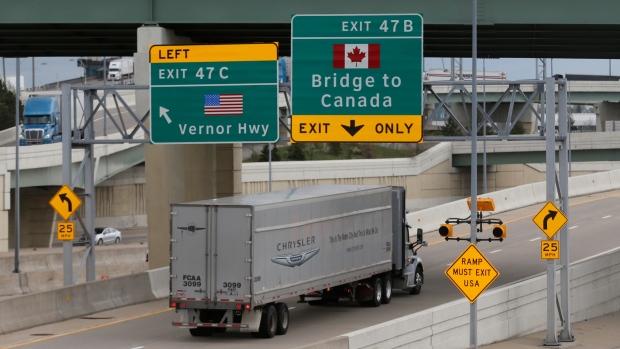

Canada has launched a wide-ranging trade dispute against the United States, challenging Washington’s use of anti-dumping and anti-subsidy duties, according to a World Trade Organization filing dated Dec. 20 and published Wednesday.
Canada appeared to be mounting a case on behalf of the rest of the world, since it cited almost 200 examples of alleged U.S. wrongdoing, almost all of them concerning other trading partners, such as China, India, Brazil and the European Union.
Canadian government calls new U.S. duties on newsprint ‘unjustified’
U.S. finalizes duties of 292% against C Series aircraft — slightly lower
The 32-page complaint homed in on technical details of the U.S. trade rulebook, ranging from the U.S. treatment of export controls to the use of retroactive duties and split decisions by the six-member U.S. International Trade Commission.
Canadian Foreign Minister Chrystia Freeland said the legal action was in response to the “unfair and unwarranted” U.S. duties against Canada’s softwood lumber producers and part of a “broader litigation” to defend forestry jobs.
“We continue to engage our American counterparts to encourage them to come to a durable negotiated agreement on softwood lumber,” Freeland said in an emailed statement.
Canada said U.S. procedures broke the WTO’s Anti-Dumping Agreement, the Agreement on Subsidies and Countervailing Measures, the General Agreement on Tariffs and Trade, and the Understanding on Rules and Procedures Governing the Settlement of Disputes.
Claims ‘unfounded’
U.S. trade representative Robert Lighthizer issued a rebuttal calling Canada’s case an “ill-advised attack on the U.S. trade remedies system.”
“Canada’s claims are unfounded and could only lower U.S. confidence that Canada is committed to mutually beneficial trade,” Lighthizer said in statement.
“Canada is acting against its own workers’ and businesses’ interests. Even if Canada succeeded on these groundless claims, other countries would primarily benefit, not Canada,” he said.
Trade lawyer Mark Warner said Canada may have some merit to its case, but he questioned the timing as the latest round of NAFTA negotiations are due to be held in Montreal later this month.
“This isn’t going to calm passions in Montreal,” Warner told The Canadian Press. “It’s almost like Canada is fighting this on behalf of the international community… I wonder why would you bring this complaint now?”
Susan Yurkovich, president of the BC Lumber Trade Council, said her organization backs the Canadian government’s move.
“Canada and the U.S. enjoy one of the most productive trading relationships in the world,” Yurkovich said in a statement. “However, this relationship depends on fair process and practices.”
Trade arsenal
Anti-dumping and countervailing duties — punitive tariffs to restrict imports that are unfairly priced or subsidised in order to beat the competition — are a core component of Washington’s trade arsenal, and frequently used to defend U.S. interests.
Such tariffs are allowed under WTO rules, but are subject to strict conditions.
U.S. trade body rules Canadian softwood hurts U.S. industry
Canada taking fight with U.S. over softwood lumber duties to WTO
The United States has been under fire for years about the way it calculates unfair pricing, or dumping. It has already lost a string of WTO disputes after its calculation methodology was ruled to be out of line with the WTO rulebook.
Under President Donald Trump, the United States has threatened to expand the use of punitive duties against China and has angered Beijing by refusing to accede to China’s demand to be treated as any other “market economy”.
Trump has also upset Canada by slapping punitive tariffs on Canadian softwood lumber exports, leading to a challenge by Ottawa at the WTO and the North American Free Trade Agreement.
courtesy=.cbc.ca.com

